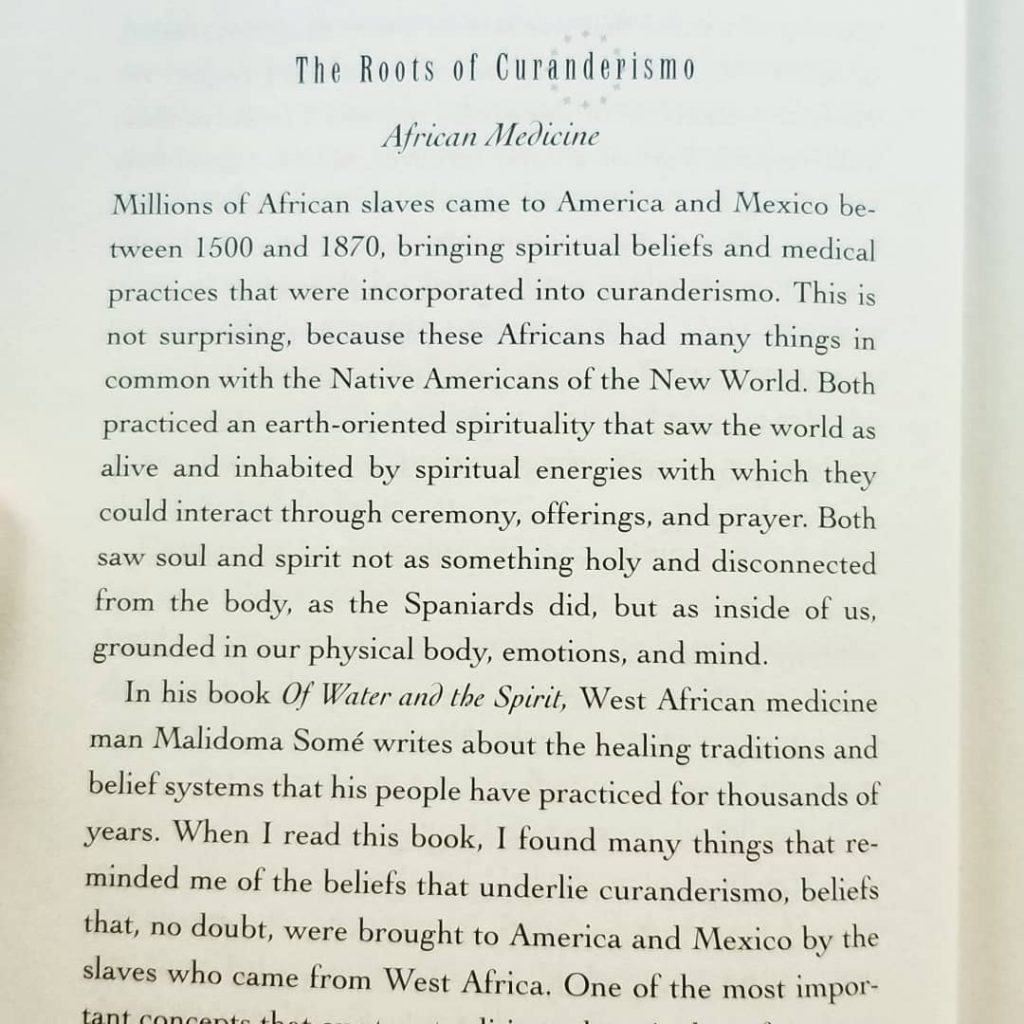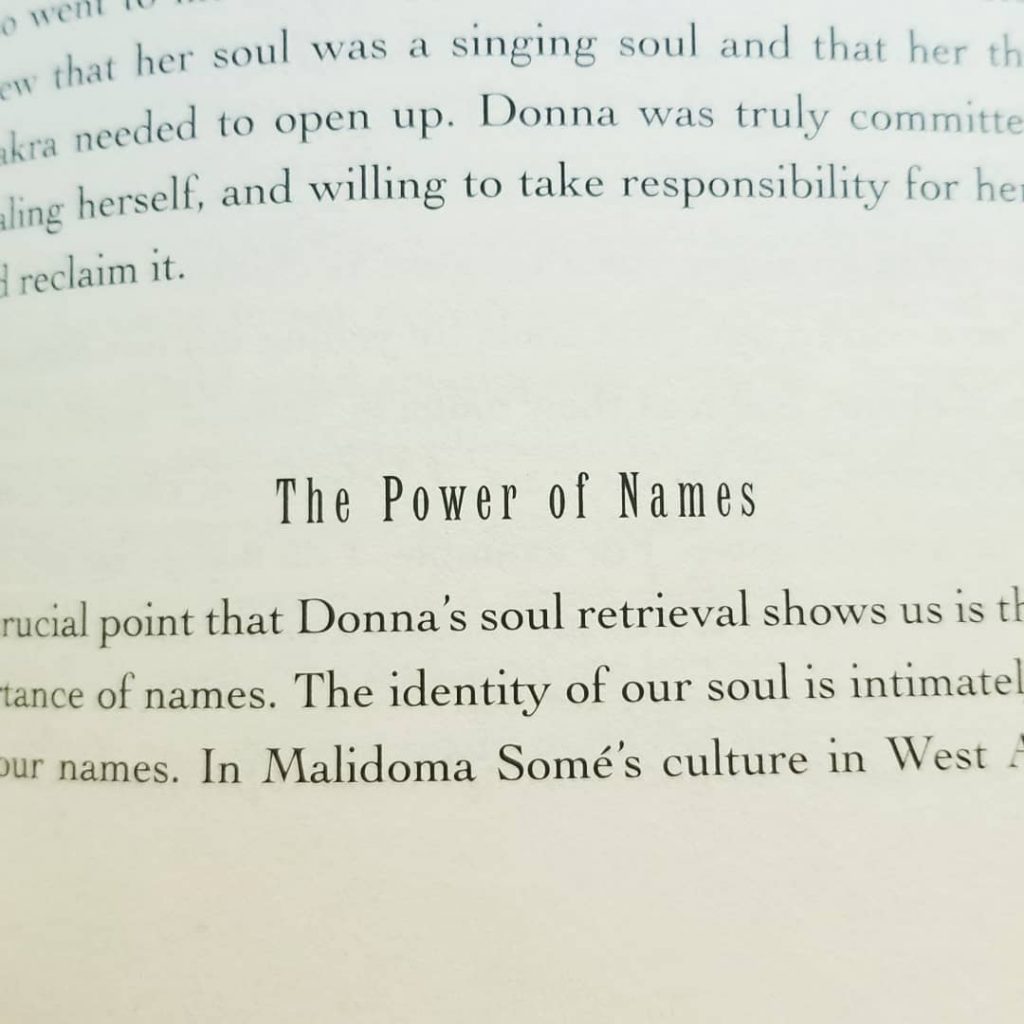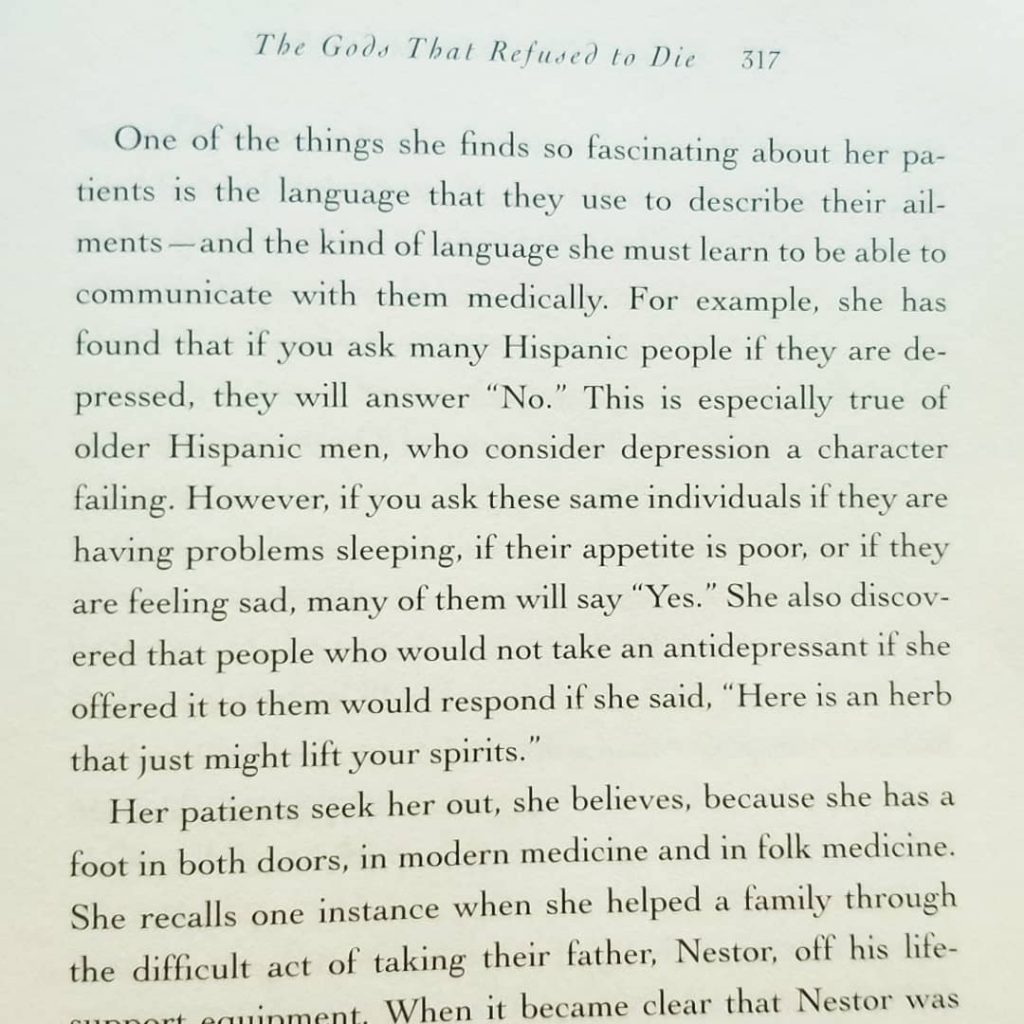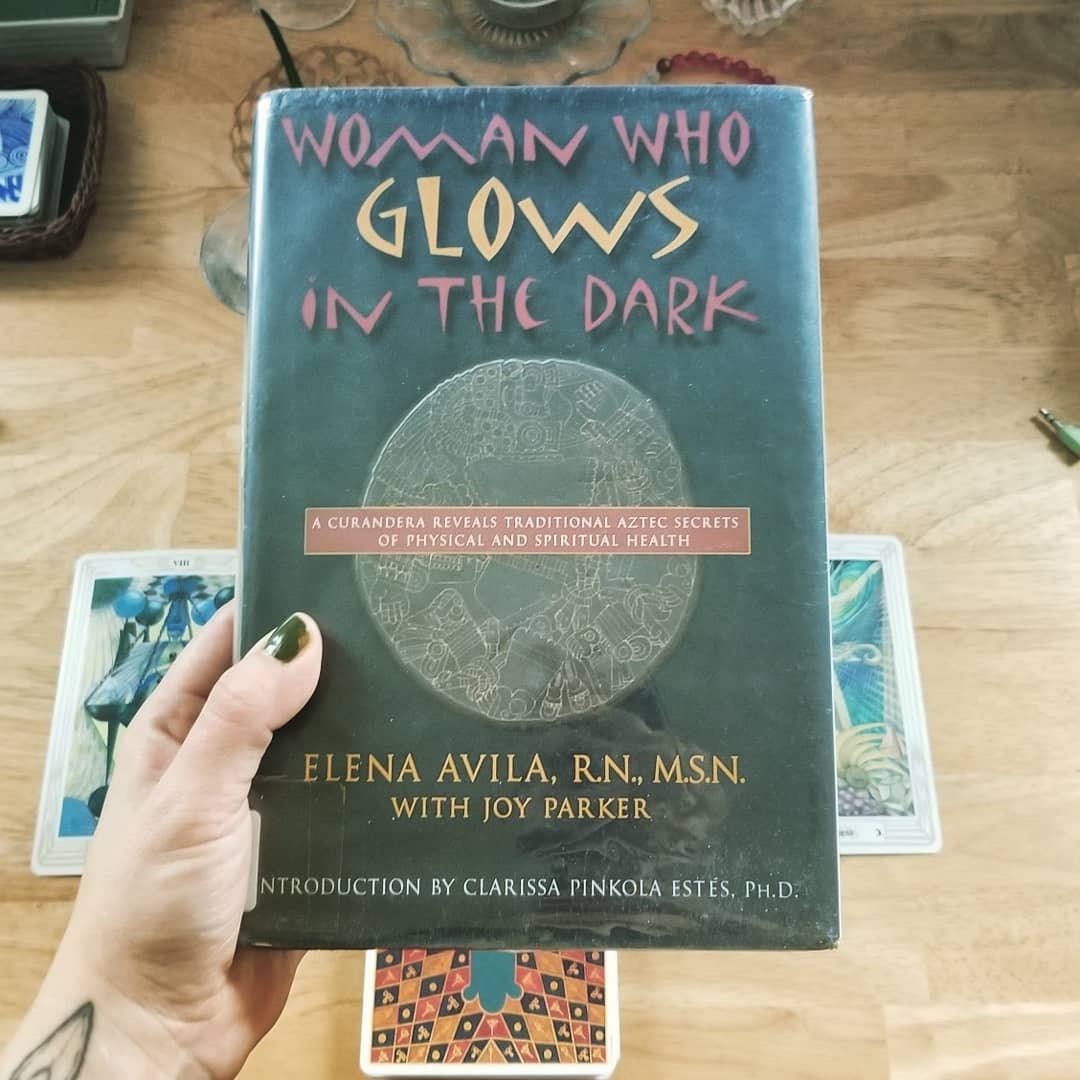This review was originally posted direct to my Instagram on December 23rd 2019.
Here is a book I’d been wanting to read for a long time. Once again, I called it over to my local library via the online hold function. This book is about curanderismo, a syncretic healer tradition born from the mixings of Indigenous, African, and Spanish peoples, on the lands currently referred to as the nations of Mexico and the United States and the armed & surveilled border areas between. A curandera wrote the book, and the curandera, Elena Avila, is also a trained psychiatric nurse. I appreciated that the book made it a point early on to recognize the cultural influences and historical importance that enslaved Africans contributed to curanderismo.

Avila emphasizes this alongside the contributions of Indigenous peoples like Mexica/Aztec and Lakota, as well as the influences of imperial Spanish Catholic colonizers. Thankfully, this isn’t an academic ethnography detailing all the specific historical junctures in our Christian imperial time. I look forward to the moment when I’m learning more of those histories, but thank the SAINTS this jawn was just regular. I’ve been in the habit of reading like…intellectual theory/history books, scifi fantasy jawns, and then these books that feel like spiritual memoir grimoire. Woman Who Glows in the Dark is one of these, and I just love a book that READS REGULAR. There is no stress. You just read through and get told stories, invited to think about stuff, and learn and feel. Ever since I went thru the process in college of having to learn how to read academic writing, I sometimes have this voice in my head when I read regular shit that’s like…I know the type of person who would look down on this writing for being too simple. The same type of ignorant, entitled person who dismisses something unless it’s high end.

A lot of this book is straight up anecdotes and recounting experiences. The opening describes the origins of curanderismo and many of its main areas of healing concern. It gives examples of how people experience various issues curanderxs then work to heal. Then it proceeds to the author’s personal experiences becoming a curandera herself, to tales of personal trials and learning lessons, and to beginning to apprentice others. It’s all very straightforward and struck me as honest and vulnerable. Like someone truly giving it to you straight, at the level you’re allowed to hear it, as someone who is interested to learn. I appreciated that presence throughout the book.
Many times throughout reading I thought of my dad. I wrote more personally about my dad and this book in my last newsletter, but the long and short of it is that the old man won’t speak positively about curanderxs when asked, and despite this, my next tactic is to tell him that he does things and has taught me things that are described in this book and what about that.

Many times Avila discusses the importance of curanderismo as a healing modality that Western medicine could benefit to learn from, or that Western medicine has become dangerous for dismissing and ignoring. I think many of us know how Western medicine, esp in the US, can be brutally cruel and callous to its subjects of treatment (us), and how many of us rely on plants and people’s communal care because of that.
This book came out in 1999. It’s not doing any new agey arcane secret telling bullshit. It’s pretty cis-centric in terms of language use or whatever. I wish there was a bibliography or something in the back, for further sources of learning, but again this isn’t an academic book. And so actually, thanks for that.
Suggestion: Requesting a copy of this book from your local library can thus make it available to others. Or ask your local book store to order it for you. Go to anyone but wicked mazn.


